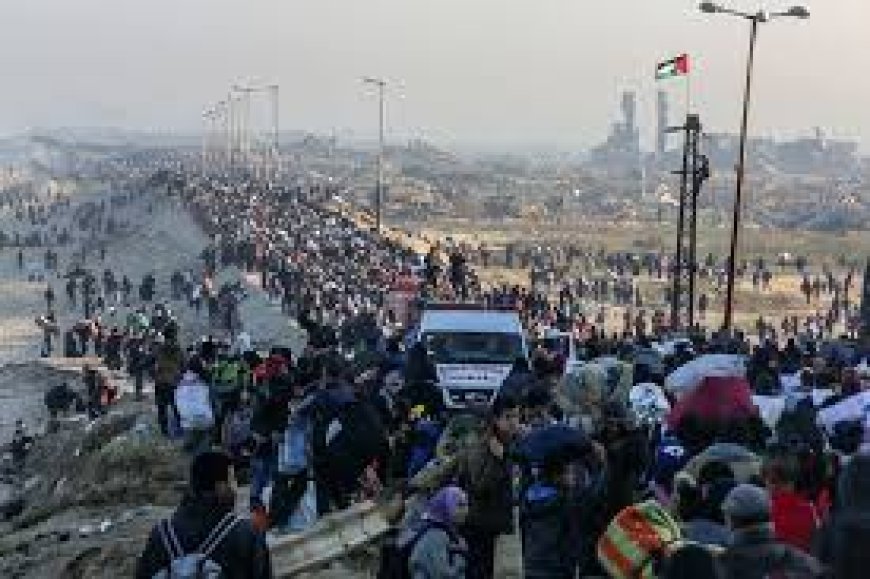BCG under fire for role in Gaza aid project tied to mass relocation plan
Boston Consulting Group (BCG) is under fire for its involvement in a Gaza aid plan allegedly tied to forced relocation. Human rights groups, analysts, and clients react.

Boston Consulting Group (BCG), one of the world’s largest management consulting firms, is under intense international scrutiny following allegations of its involvement in a controversial aid project in Gaza that critics claim is linked to a broader plan to facilitate the mass relocation of Palestinian civilians from the embattled territory.
Allegations Surface Over Aid Project's Intent
The controversy began after a joint investigation by several human rights organizations and independent media revealed that BCG had advised on a humanitarian aid proposal for Gaza that allegedly included provisions encouraging or enabling large-scale civilian displacement under the guise of relief and reconstruction.
According to leaked documents and testimonies, BCG’s input was sought by Israeli government officials and international stakeholders earlier this year to design a framework for humanitarian corridors, logistics coordination, and economic redevelopment. However, embedded within the framework were options that reportedly considered relocating large populations from northern Gaza to areas near the Egyptian border or other regions under Israeli-approved oversight.
While BCG maintains that its role was limited to "technical consulting and logistical support for humanitarian access," critics argue that the company's recommendations may have facilitated or legitimized a policy of forced displacement — a violation of international law under the Geneva Conventions.
Global Human Rights Outcry
International human rights groups such as Amnesty International and Human Rights Watch have condemned the alleged involvement. In a joint statement, they said, “Any aid initiative that indirectly supports or disguises forced population transfer is a breach of international humanitarian norms. Corporate complicity in such plans cannot be ignored.”
Omar Shakir, Israel and Palestine Director at Human Rights Watch, stated, “What BCG appears to have done, even if under the veil of humanitarianism, is to provide a blueprint that risks facilitating war crimes.”
BCG Responds to Criticism
In a statement released on Friday, BCG denied any wrongdoing, stating:
“BCG operates globally with the highest ethical standards. In Gaza, our only engagement was to assess the viability of humanitarian aid delivery and infrastructure support, at the request of multiple international partners. We categorically deny any involvement in or endorsement of forced relocation.”
Despite its denial, BCG has not yet addressed specific details in the leaked documentation, such as internal memos suggesting alternative population resettlement zones and draft logistical frameworks for phased civilian movements.
Analysts Weigh In
Industry experts and analysts note that the backlash could have significant reputational repercussions for BCG.
Dr. Maria Hess, a business ethics professor at the University of Oxford, remarked:
“Even if unintentional, aiding in any plan that facilitates displacement—especially in a conflict zone—is reputationally damaging. For a firm like BCG, perceived neutrality is crucial. This scandal risks tainting that image.”
Financial and legal experts also warn of potential lawsuits, partner exits, or even government sanctions if deeper complicity is proven. There are also calls for investigations from several European lawmakers who have demanded transparency from consulting firms operating in conflict zones.
Market and Client Impacts
Though BCG is privately held and not publicly traded, its global clients include Fortune 500 companies, governments, and international institutions. Several clients are reportedly reviewing their engagements in light of the controversy.
One European energy company, speaking on the condition of anonymity, said, “We’re deeply disturbed by the reports and are currently reevaluating our relationship with BCG pending further clarification.”
Competitors such as McKinsey & Company and Bain & Company may indirectly benefit if clients opt to distance themselves from BCG amid reputational concerns.
Political Repercussions
The scandal comes at a politically charged moment, as ceasefire negotiations between Israel and Hamas continue to falter and international pressure grows for sustained humanitarian access in Gaza.
Egypt and Jordan, two key regional players, have publicly opposed any mass relocation of Palestinians from Gaza, viewing it as a dangerous precedent that could destabilize the region. The alleged involvement of a Western consulting firm in planning or supporting such moves is likely to deepen mistrust in international aid frameworks.
Investor and Industry Outlook
From an investor standpoint, while BCG is not listed, the scandal may impact the broader professional services sector. Institutional investors are increasingly applying Environmental, Social, and Governance (ESG) metrics to evaluate exposure to geopolitical risks and human rights issues.
Emily Thorne, an ESG analyst at ClearPath Capital, explained:
“Firms like BCG may face scrutiny not only from the public but from their own institutional stakeholders. We’re seeing growing demand for transparency in consulting operations, especially those that intersect with high-risk political environments.”
The consulting industry may face new calls for third-party audits, policy disclosures, and limitations on engagement in conflict-afflicted regions.
As the situation evolves, BCG’s role in the Gaza aid project remains under investigation. Whether the firm’s involvement was a misstep in judgment or part of a larger policy direction, the repercussions are real and mounting. For BCG, a firm that built its brand on strategic acumen and discretion, this controversy may mark a rare but consequential blow to its global standing.
What's Your Reaction?
 Like
0
Like
0
 Dislike
0
Dislike
0
 Love
0
Love
0
 Funny
0
Funny
0
 Angry
0
Angry
0
 Sad
0
Sad
0
 Wow
0
Wow
0












































































